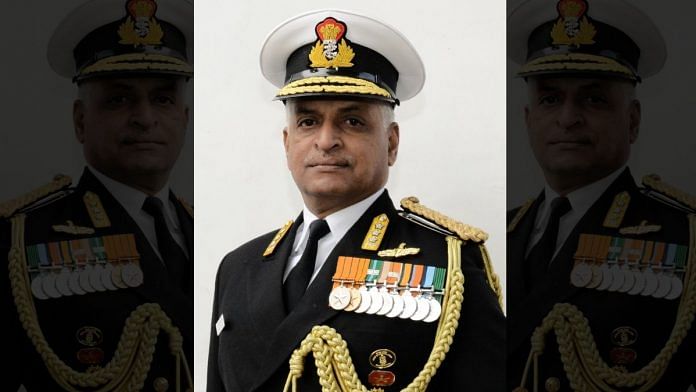In what is clearly a step in the right direction, the Narendra Modi government on Wednesday appointed former Indian Navy vice chief Vice Admiral G Ashok Kumar as the country’s first National Maritime Security Coordinator. Vice Admiral Kumar will report to the National Security Advisor Ajit Doval through the National Security Council Secretariat.
The Navy officer, who retired last year, will be responsible for coordinating between all government agencies on maritime security and maritime civil issues, and also providing crucial inputs on the same to the political and security leadership. This move signals the growing importance of the Navy in the overall security and defence matrix, considering how the maritime domain will be a crucial element in any future wars.
The appointment also comes after the Navy got a huge hike in Union Budget allocation after years of neglect. I have been pitching for a renewed focus on the Navy through my column arguing that such an approach is the need of the hour. The sad fact is that while the Chinese Navy was planning ahead, the approach of India, which has a coastline of around 7,500-kilometres, did not match up, above sea or below.
Also Read: India bumbled along while China grew its navy. Now, embracing the West is the only option
Appointment after 22 years
While this is a welcome move, the appointment was made after a gap of 22 long years since it was first recommended. A Group of Ministers (GoM), set up in 2000, after the Kargil conflict, had first recommended setting up “an apex body for the management of maritime affairs”. It had said that such a body was needed for institutionalised linkages between the Navy, Coast Guard and the concerned Ministries of the Central and the state governments. “The MoD should take necessary action to constitute the apex body,” the GoM had then said.
After the 26/11 attacks, the defence ministry proposed a Maritime Security Advisory Board, which was again left pending. Even in 2014 and 2015, the issue was highlighted first in a report of a Standing Committee on Defence presented in the 15th Lok Sabha and then in another report by the Public Accounts Committee (PAC), which also probed the question of inter-agency communications again in 2020.
It is only on Wednesday when the proposal that was recommended 22 years ago saw the light of the day.
Also Read: Budget again shows Navy is India’s forgotten Service. While China marches to 2049 mega plan
Part of larger defence and security reforms
Government sources said that the appointment of a Maritime Security Advisor is part of the higher military and security architecture reforms that are being carried out, including the earlier creation of the post of the Chief of Defence Staff.
Sources say that in the new global security architecture, the Navy plays a critical role as the maritime domain is the new focus. There is no denying that the world is witnessing a new surge in countries strengthening their maritime sector, thanks, mainly, to an aggressive China, which has the fastest-growing Navy in the world.
Also Read: China’s Navy sails beyond shores while Indian military looks at budget
Maritime interests of India
For India, the blue waters are indeed critical. According to the Ministry of Shipping, around 95 per cent of India’s trading by volume and 70 per cent by value is done through maritime transport. Actually, India’s maritime history dates back to 3000 BC when the inhabitants of the Indus Valley Civilisation had a maritime trade link with Mesopotamia. While India’s maritime prowess has been a key part of its history, it slowly receded to the background.
Even on the military front, the Indian Navy had come on record to complain about the lack of budgetary allocations to it, which was affecting their modernisation even as China raced ahead. But government sources say efforts are now on to ensure the Navy gets the right focus. They point out that the capital budget of the Indian Navy has been enhanced by a whopping 44.53 per cent, with a total allocation of Rs 46,323 crore in FY 2022-23.
Incidentally, the Navy had this year outspent Rs 12,767.99 crore, more than what it was allocated in 2021-22 – Rs 33,253 crore. The majority of this expenditure was for committed liabilities, that is, payments that need to be done in connection with contracts signed in the past.
This high spending by the Navy, given its low overall budgetary allocation, comes even as it is yet to roll out critical, multi-billion dollar projects for building new conventional and nuclear submarines, over 200 of two variants of helicopters for its fleet, while also acquiring new vessels, including minesweepers, landing platform docks and possibly a third aircraft carrier.
Naval sources are happy with the creation of the National Maritime Security Coordinator and hope that this will bring a renewed focus on India’s maritime needs and the importance of having a strong blue-water force, not just for securing India’s commercial interest but also to further the country’s defence, security and diplomatic needs.
Views are personal.
(Edited by Srinjoy Dey)



